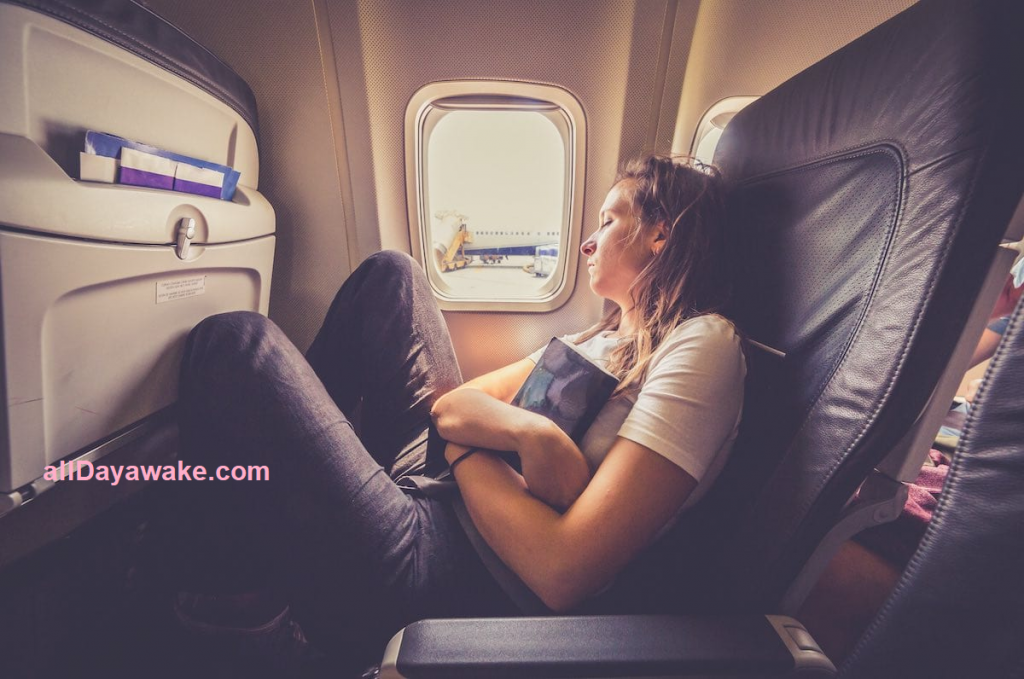Travel is one of life’s greatest pleasures for many individuals. For others, it’s a necessary component of their job. Whatever your reason for traveling, getting enough sleep promotes wellness and allows you to get the most out of any vacation.
Despite the significance of good sleep, it’s typical to have trouble sleeping while traveling. Poor sleep on a vacation can be cause by a variety of factors, but there are tangible steps you can do to enhance your sleep while in travel and throughout the duration of your journey.
How does travel affect your work?
Travel fatigue creates many difficulties for the person who is travel due to their work. There are many complications that can arrive while you have to work after traveling.
If a person has travel anxiety or fear of little transportation like flight, helicopters, or some has specific transport fear. These feelings of fear cause you sleep disturbance and you are unable to sleep. As a result, the next day they feel so drowsy all-whole day and unproductive at their workplace.
What Causes Sleep Disruption When You Travel?
While travel can provide new and interesting experiences, it can also have drawbacks. Many people find it difficult to sleep while traveling, making it difficult to fully appreciate their trip.
Fatigue from travel
Travel can cause physical and mental exhaustion, resulting in travel fatigue. Exhaustion, headaches, sleep loss, and other sorts of discomfort are all signs of travel stress.
Travel tiredness can be cause by a variety of factors:
- Fear of flying or other forms of transportation.
- Anxiety over issues that may arise during a journey.
- Packing, arriving on schedule, and other logistics-related stress
- Motion sickness problem
- Long days of travel.
- There are delays or disruptions in the schedule.
- Inability to sleep while traveling, such as on a plane, train, or car while sitting upright.
- Dehydration, bloating, constipation and respiratory tract infections can all be cause by flying in a pressurize cabin.
- Changes in food and drink consumption while traveling, including an increase in alcohol and caffeine usage.
- Sitting for long periods of time can promote leg inflammation, stiffness, and decreased physical activity.
Travel weariness can strike at any time and for any reason, and it can exacerbate underlying health problems.
Jet lag
Long-distance flights that cross three or more time zones can cause jet lag, which is a short-term sleep condition. The circadian rhythm of a person is still root in their home time zone when they arrive, causing a misalignment with the local time at their destination.
The inability to sleep is a common symptom of jet lag. Impaired physical or mental function, daytime tiredness, gastrointestinal issues, and general malaise are some of the other symptoms.
Jet lag usually lasts a few days, but it can last up to a few weeks before a person’s circadian rhythm adjusts to local time. When flying east and crossing many time zones, jet lag is usually more severe.
Changes in the Schedule
Even if a person’s circadian rhythm isn’t disrupt by jet lag, changes to their daily schedule, especially their bedtime, might cause sleep problems. It may be more difficult to fall asleep or sleep through the night if your sleep habit is disrupt.
It’s normal for people to desire to jam as much as possible into their daily schedules, especially on vacations and business travels. This may result in overstimulation and/or a lack of sleep time budgeted.
Sleeping in New or Uncomfortable Places
People have a tendency to sleep worse the first night they spend in an unusual environment, according to studies. The “first-night effect” was first observed in sleep clinics, where researchers discovered a consistent pattern.
This effect appears to be widespread, not only in sleep clinics. Further studies indicate that even in a relaxing environment like a spa resort, first-night sleep quality was lower. According to some scientists, this is an evolutionary survival mechanism that keeps a section of the brain active when sleeping in a new area.
When traveling, sleep normally improves after the first night, but this is not always the case. It may be difficult to get unbroken sleep if your lodgings include an unpleasant mattress or much light or noise.
Diet and Exercise Routine Changes
Travel is generally view as a welcome respite from daily routines, although sleep interruptions may be cause by changes in establish patterns.
Travelers may be tempt to consume more alcohol or eat larger meals than usual, both of which can disrupt sleep patterns. While traveling, regular exercise, which might help you sleep better, maybe curtailed or adjusted.
The bottom line
Manage your sleep while you are traveling isn’t easy at all. You must have too aware of some smart steps for having a good work performance and do not let travel disturb your work.





More Stories
What to Do If You Want to Start Up a Dermatology Business
What are the 5 main symptoms of yellow fever?
Benefit and Nutritional Value Of Almond Flour